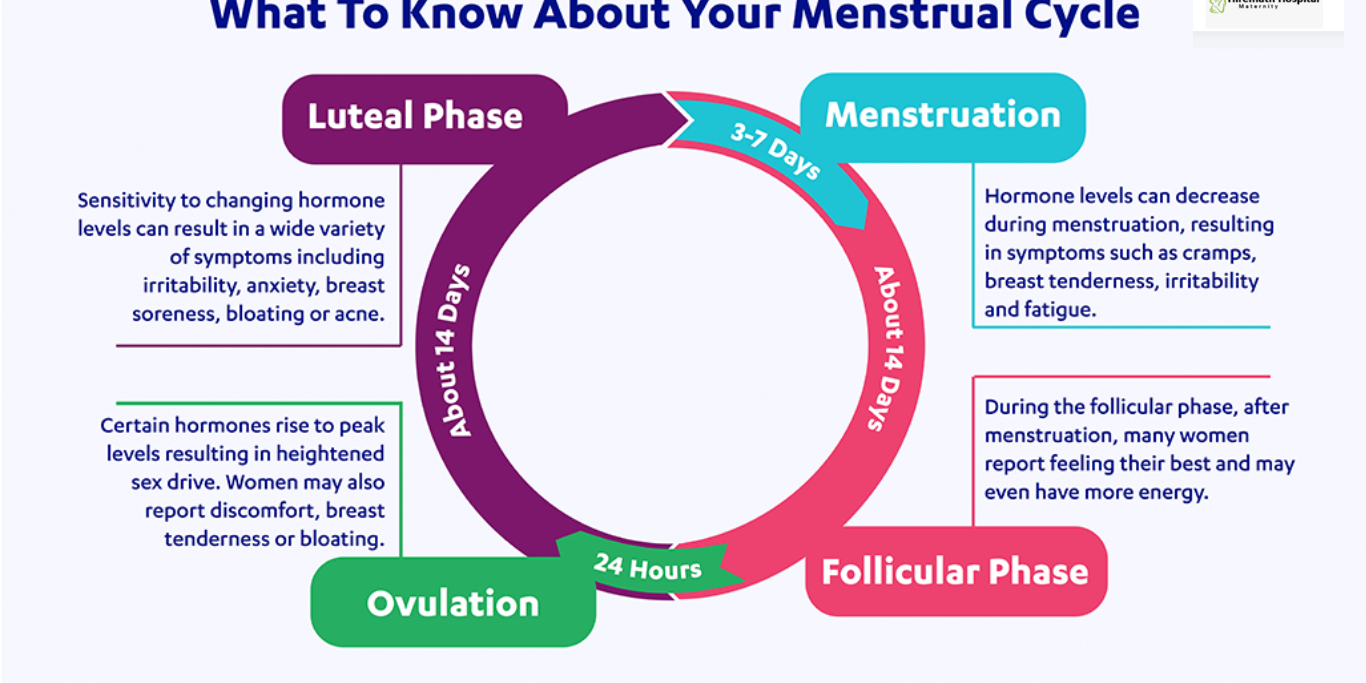As a woman, it’s important to understand your menstrual cycle to maintain good reproductive health. The menstrual cycle is a complex process that occurs in the female body every month. Understanding your menstrual cycle can help you identify irregularities and potential health concerns.
It’s important to consult with a gynecologist in to understand your menstrual cycle better. In this blog post, we’ll discuss what you need to know about your menstrual cycle.
What is the menstrual cycle?
The menstrual cycle is a recurring process that prepares the female body for pregnancy. It is regulated by hormones and involves the shedding of the uterine lining if pregnancy does not occur.
The menstrual cycle is usually 28 days long, but it can vary from 21 to 35 days. The cycle begins on the first day of your period and ends on the day before your next period. The menstrual cycle is divided into three phases: the follicular phase, ovulation, and the luteal phase.
Follicular phase
The follicular phase begins on the first day of your period and lasts for about 14 days. During this phase, the body prepares to release an egg from the ovaries. The hormone estrogen rises to thicken the lining of the uterus, and the follicles in the ovaries begin to mature.
Ovulation
Ovulation usually occurs on day 14 of the menstrual cycle. During this phase, the mature follicle ruptures, and the egg is released into the fallopian tube. The egg is available for fertilisation for about 24 hours.
Luteal phase
The luteal phase begins after ovulation and lasts for about 14 days. During this phase, the empty follicle in the ovary becomes the corpus luteum, which produces the hormone progesterone to thicken the uterine lining. If the egg is not fertilised, the corpus luteum breaks down, and the hormone levels drop, leading to the shedding of the uterine lining and the start of a new menstrual cycle.
Understanding irregularities in the menstrual cycle
While a 28-day menstrual cycle is considered normal, irregularities can occur. Some women may experience longer or shorter cycles, and the length of the cycle can vary from month to month. Irregularities can be caused by various factors, including stress, weight fluctuations, and medical conditions.
Consulting with a gynecologist can help identify the cause of irregularities in your menstrual cycle. They can perform a physical exam, take a medical history, and conduct tests to diagnose any underlying conditions.
Conclusion
Understanding your menstrual cycle is crucial for maintaining good reproductive health. If you’re located in Pimple Saudagar, Pune, consulting with a gynecologist in Pimple Saudagar, can provide you with the guidance and support you need to navigate your menstrual cycle effectively. Remember, if you experience any irregularities or concerns about your menstrual cycle, seek medical attention promptly to ensure optimal reproductive health.
About Hiremath Hospital:-
Dr. Bharati Hiremath (Hiremath Nursing Home) in Talera Hospital Road, Pune is one of the most renowned Gynaecologist & Obstetrician Doctors in the area. The practitioner holds qualification in the capacity of DGO Talegaon Mimer Medical College, Pune University 2004, MBBS Talegaon Mimer Medical College, Pune University 2001. Countless locals in Talera Hospital Road have placed immense trust in the practitioner over the years. Dr. Bharati Hiremath (Hiremath Nursing Home) is situated at Survey No 283, Plot No 24, Talera Nagar, Talera Hospital Road, Chinchwad-411033 near Talera Nagar, which is easily accessible through various modes of transport.







